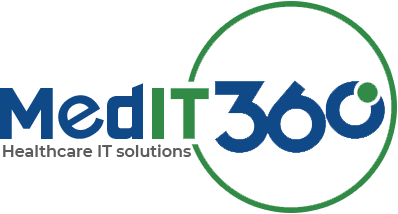A medical billing service consists of extensive processes. A large number of people visit hospitals every single day, involving many details like patient information, payment, and insurance details. Billers are responsible for medical claims, invoices, and payments between healthcare providers and insurance companies. The health care system includes hospitals, doctor’s offices, and clinics, a process called medical billing service. This procedure is necessary to guarantee that healthcare practitioners get paid promptly and fairly for their medical services. We’ll explain the medical billing service in full below, outlining its main elements and tasks.
Here are the 6 detailed steps that will help you understand the Medical Billing Services:
1. Registration and confirmation of patients:
The procedure starts with completing the patient’s information and gathering and validating the patient’s insurance and demographic data to make sure it is accurate and up-to-date. Then, the billers confirm from the insurance company the patient’s coverage with the insurance, the scope of coverage, and the essential requirements. Moreover, billers confirm that the patient’s insurance policy will pay for the medical treatments.
2. Coding
The conversion of medical data into codes utilized by the healthcare sector is known as medical coding.
Healthcare billers use the proper diagnostic (ICD-10) and procedural (CPT) codes to accurately describe the patient’s condition and the services provided and examine the patient’s medical records to ensure the codes correspond to the reported diagnoses and treatments. They also ensure that the coding and documentation follow the rules and regulations of that particular industry.
3. Submission of Claims and Tracking:
Claims are a crucial part of medical billing to seek reimbursement for healthcare services. The billers Put the coded data into insurance claims and submit them electronically or on paper to insurance companies.
Keeping track of claim status following the development of submitted claims, spotting any denials, delays, or rejections, and taking quick action on any problems.
4. Reconciliation and Payment Posting:
Billers accurately enter payments from patients and insurance companies into the billing system. In case of any inconsistencies between expected and actual payments, they look into and resolve that and verify that payments correspond to amounts billed and that all transactions have been correctly reconciled through reconciliation with billing records.
5. Billing and follow-up for patients:
Billers try to solve the issues of the patients and respond to their questions and concerns from patients about their bills, insurance claims, and available payment methods.
They attempt to manage outstanding balances by contacting patients to arrange payment plans, collect outstanding balances, and, if necessary, coordinate with collection agencies.
6. Adherence to Regulations and Compliance:
Furthermore, they safeguard data security and protect patient privacy. Ensure that all patient data is handled according to the rules of healthcare programs like Medicaid and Medicare. Additionally, they ensure that the rules of health care programs handle all patient data.
Positive aspects of medical billing services
Increased Revenue: By ensuring accurate and timely invoicing, medical billing services can assist healthcare providers in maximizing their revenue. The likelihood of claim denials and underpayments is decreased because they are professionals at deciphering complicated billing codes and rules.
Reduction in Administrative Workload: By outsourcing billing responsibilities, healthcare practitioners and their staff can devote more time to patient care and other crucial areas of their practice, decreasing administrative labour.
Knowledge and Compliance: Experts in healthcare billing laws and coding are employed by medical billing businesses. Ensuring compliance with healthcare rules and regulations lowers the possibility of legal problems.
Cost savings: Although medical billing services are expensive, they can help reduce costs by increasing revenue collection, eliminating billing errors, and
Cost savings: Although medical billing services are expensive, they can save money by lowering billing errors, enhancing revenue collection, and eliminating the need for internal billing staff and associated costs.
Efficiency and technology: Modern billing software and technology are frequently used by billing services, which can speed up the billing process and reduce the time it takes to receive payments.
Focus on Patient Care: By outsourcing billing duties, healthcare professionals may give their patients high-quality care without being preoccupied with billing issues.
Medical billing services’ drawbacks
Cost: Using a medical billing service requires payment in the form of fees or a share of income, which can reduce the practice’s earnings.
Loss of Control: When healthcare providers outsource billing, they give up some of their control over the billing procedure. They might not be directly in charge of all billing operations.
Security issues: Data security issues might arise when patient information is shared with a third-party billing provider, calling for strict security protocols and agreements.
Communication concerns: The healthcare provider and the billing service may need help with communication problems, which could cause misconceptions or delays in addressing billing concerns.
Transition Period: Making the switch from an internal billing system to an external service might be disruptive and take some time.
Conclusion
In conclusion, a medical billing service is crucial in efficiently operating the healthcare sector. Healthcare workers are fairly compensated for their crucial services, thanks to this intricate administrative process. Medical billers handle a variety of activities, from patient registration and insurance verification to exact coding, claims submission, and payment reconciliation, and they are essential to the financial viability of healthcare organizations. Additionally, they answer patient questions and work to settle unpaid amounts, acting as a crucial link between patients and the complex world of healthcare billing.
They must also follow strict healthcare standards, protect patient information, and meet Medicaid and Medicare requirements.
Medical billing services have many benefits, such as higher income, less administrative work, and compliance knowledge. Effective technology may streamline processes and allow healthcare professionals to devote more time to patient care. However, they have expenses and possible difficulties, such as a loss of control over invoicing procedures and worries about data security.
Despite the negative aspects, medical billers’ efficient administration of the administrative components of healthcare billing ultimately makes healthcare more accessible and affordable for both people and communities. They play a crucial role in the healthcare sector, which benefits patients and the industry.
Why You Choose You MEDIT360 for Medical Billing Services?
Get a Free Consultation
MedIT360 employs a highly trained billing staff that can remotely handle specialty billing with remarkable efficiency and accuracy. The company has served more than 100+ practices in 22 states. Outsource medical billing services to a team that works closely with providers to decrease the stress of the billing and boost revenue collections. Our support team is available 24/7 to help our clients in a personalized way, listening to their problems, and providing the best results

